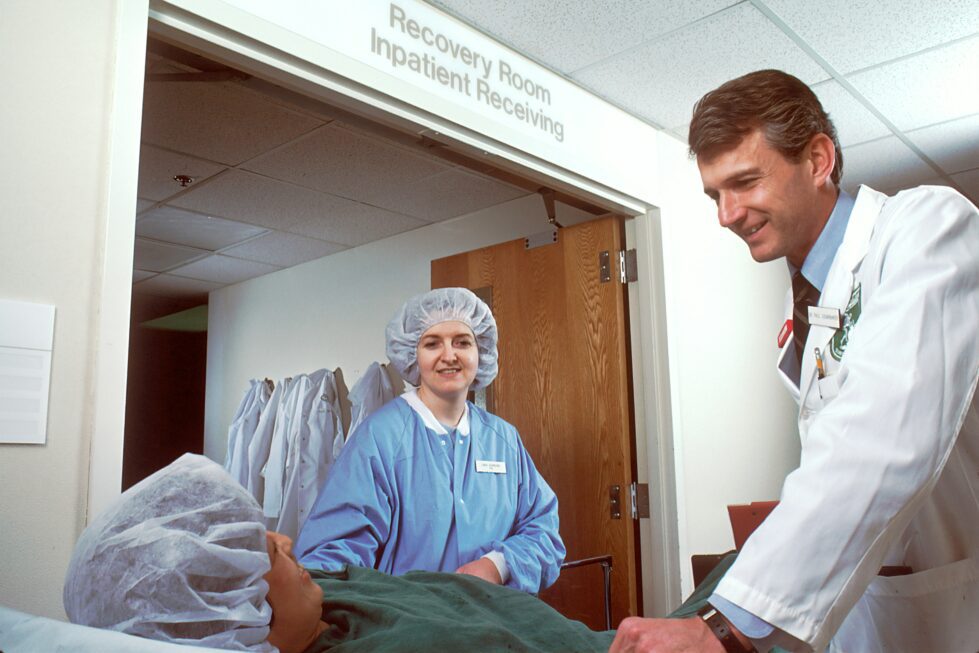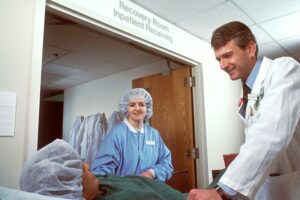Colon cancer is the second leading cause of cancer related deaths in the U.S. This is one of the few cancers for which we have effective tests for screening. Many people shy away from colorectal cancer screenings because of what they’ve heard about others’ experiences but testing methods and preparation for the most common type of screening — colonoscopy — have changed in recent years. Colorectal cancer screening recommendations have also changed.
One of the most notable changes is that regular screenings should begin at age 45 instead of 50 for those at average risk of colorectal cancer. Bayhealth Gastroenterologist Abhishek Agnihotri, MD, answers some common questions about the screening guidelines.
“A greater number of younger people are being diagnosed with colorectal cancer,” Dr. Abhishek Agnihotri, Bayhealth gastroenterologist, said. “According to the American Cancer Society (ACS), research has found that while the rate of diagnosis has declined in those ages 65 and older, the rate for those in the younger age groups of 20-39 years old and 40-54 years old has been increasing for some time. The ACS reported in 2020 that about 18,000 or 12% of colorectal cancer cases would be diagnosed in people under age 50.”
Agnihotri explained that people may be at high risk of colorectal cancer if they have a strong family or personal history of colorectal cancer or certain types of polyps, a personal history of ulcerative colitis or Crohn’s disease, a family history of Lynch syndrome or adenomatous polyposis syndrome, or a personal history of radiation treatment for previous cancer in the pelvis or abdomen. If you do have any of these high-risk factors, then you may need a colonoscopy before age 45.
“The ACS recommends that those at average risk who are in good health and with a 10-year life expectancy continue having colorectal cancer screenings until age 75,” Agnihotri said. “Those who are ages 75-85 years old should discuss if they need to continue screenings with their doctor based on assessment of their overall health. After age 85, colorectal cancer screenings aren’t recommended.”
Today, there are several options for colorectal screenings, including stool-based tests and visual exams of the colon. Most colon cancers start as polyps. Colon polyps are growths in the colon seen commonly, and some of them, over years may grow and turn into cancer. Stool-based tests include fecal immunochemical tests (FIT), fecal occult blood tests (gFOBT) and stool DNA tests. These tests are sensitive to detect colon cancer but may not detect colon polyps.
“The FIT or gFOBT tests are performed every year and the stool DNA tests are done every three years. Visual exams of the colon include colonoscopy, CT colonography (also called virtual colonoscopy), or flexible sigmoidoscopy. In addition to detecting colon cancer, these tests can also detect colon polyps which may then be removed,” Agnihotri said. “If there are any abnormal results from the stool-based tests or other visual exams then you will need a follow-up colonoscopy. It is important to discuss the advantages and disadvantages of different tests before deciding on which test is right for you.”
Screenings can be done by a gastroenterologist, general surgeon, or colorectal surgeon and can be scheduled through Bayhealth. In the case of a colonoscopy, you may need a consult. During the colonoscopy consult, you will be seen by a physician, physician’s assistant, or nurse practitioner who will review your medical history, medications, any prior colonoscopy findings (if applicable), and family history. Immediately following the visit, you will speak with a surgery scheduler who will assist you in finding a date for your colonoscopy, and you will be given written directions for the diet and bowel prep you need to do the day before your colonoscopy.
If you need help setting up a colorectal cancer screening, call Bayhealth Colorectal Screening Nurse Navigator Judy Giddens at 302-744-6098.
Share this Post




